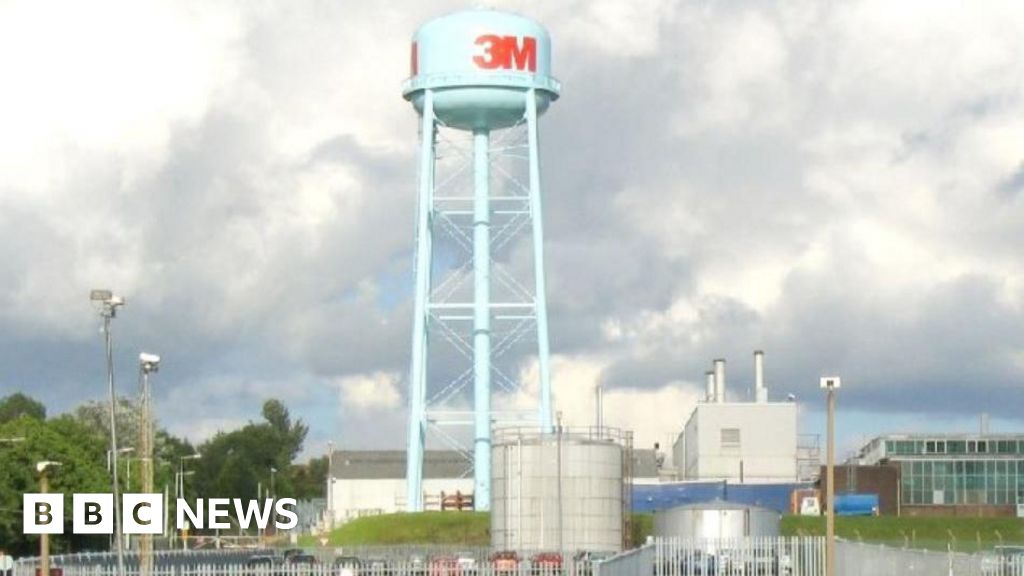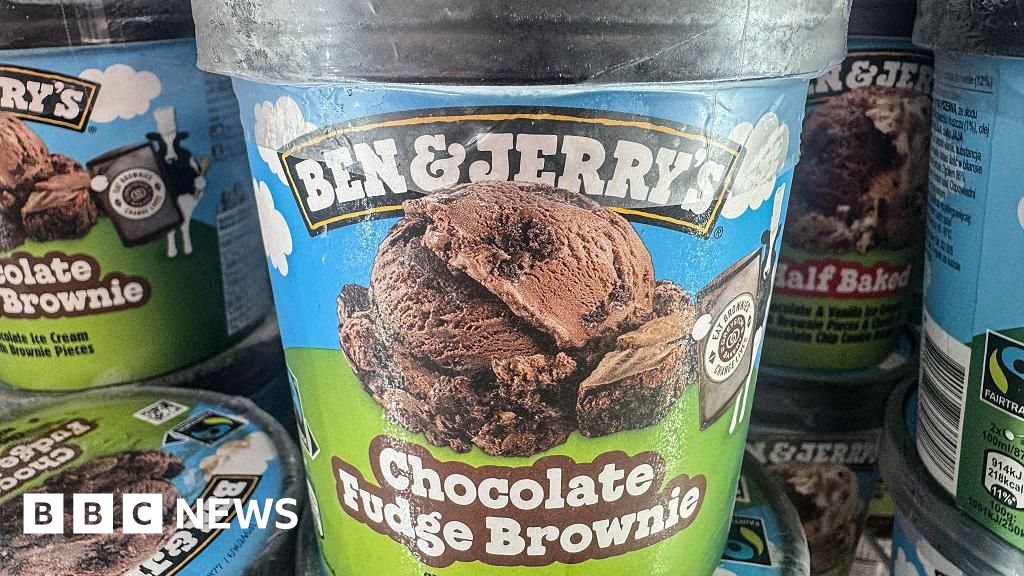
A cold snap could swipe the spotlight in low-drama Iowa caucuses : NPR
- Politics
- January 14, 2024
- No Comment
- 311

Signage for the Iowa caucus during a storm in Des Moines, Iowa on Jan. 9.
Rachel Mummey/Bloomberg via Getty Images
hide caption
toggle caption
Rachel Mummey/Bloomberg via Getty Images

Signage for the Iowa caucus during a storm in Des Moines, Iowa on Jan. 9.
Rachel Mummey/Bloomberg via Getty Images
The forecast now calls for sub-zero temperatures on the night Iowans caucus to commence their presidential nominating process. But some in the state have been feeling another chill: the sense that their much ballyhooed “first in the nation” exercises might not matter all that much this year.
Starting in the 1970s, Iowa established itself as the starting line for the national presidential race. Each four years, its caucuses occasioned a frenzy in the worlds of politics and media. But in this unusual cycle, an unusual word has appeared in some of the media coverage — the word “relevance,” often in a sentence ending with a question mark.
Most news stories and commentaries still argue for the relevance of the caucuses. The Democrats are not beginning their delegate selection here this year, but Republicans still are. And after months of debates and ads and media jousts, this is the GOP candidates’ first test with measurable consequences.
That preference of place is what Iowa has marketed so successfully for its caucuses for decades. Since 1972 they have provided the first thing that looks like actual voting – albeit in an unusual format. They also precede the famous first-in-the-nation primary in New Hampshire, which this year follows on January 23.

But beyond the distinction of being first, Iowa has also marketed something else: the element of surprise. In the half century since those 1972 caucuses, Iowa has staged a dozen reiterations. And more times than not, the news that emerged was news largely because it caught most of the media off guard – and editors everywhere trotted out headlines about “another Iowa surprise.”
The focus on Iowa began around the time the Democratic Party was creating a new system of caucuses and primaries to choose delegates to the national convention that nominated its presidential candidate.
Relatively few Americans had heard of South Dakota Sen. George McGovern, who had a role in big role in creating the new system, until he tried it out for himself in Iowa in 1972. He finished second there, behind “Undecided,” but he got some attention and went on to win other delegate-selecting events in other states. That led to his nomination at the ground-breaking, tradition-busting party convention that summer (and to a 49-state landslide loss in November).
Four years later, a little-known former Georgia Gov. Jimmy Carter reprised the McGovern strategy in Iowa, winning the nomination and the election and serving one term in the White House.
Republicans soon got into the act, and with real consequences. In 1980, much of the country was still acquainting itself with a diplomat and former CIA director named George H.W. Bush. Then he beat former California Gov. Ronald Reagan in the Iowa caucuses. Reagan recovered to win the nomination and then hired Bush’s campaign manager, James A. Baker, who in turn sold Reagan on Bush as his running mate. Bush would serve eight years as vice president and four more as president; and his son would serve another eight in the Oval Office.
More surprises coming soon to a caucus near you?
You hate to bet against surprises in Iowa, but it seems a stretch to expect much in that regard this time around. All the polling shows former President Trump with something like half the caucus vote locked up. He has kept his hold on the state’s politically active white evangelicals – a dominant factor in recent GOP cycles. These numbers have seen little change over the past year. So if Trump were to get less than half the Republican total on Monday night, the Iowa caucuses will have freshened their franchise as the Home of Surprises.
More likely, the story that competes for air time with the frigid weather will be the new second-place status of Nikki Haley, the former governor of South Carolina who has been the focus of the coverage in recent weeks. Three of the first four polls reported this past week showed her leading among the GOP also-rans, even getting 20% in an Iowa poll by Suffolk University.
Haley appears to be eclipsing Florida Gov. Ron DeSantis, who began 2023 as the closest thing Trump had to a real rival. But DeSantis’ numbers have withered here, as elsewhere. The latest average of Iowa polling by FiveThirtyEight.com gives him just one GOP caucus vote in six.

A television monitor in the media filing room displays Ron DeSantis, governor of Florida and 2024 Republican presidential candidate, and Nikki Haley, former ambassador to the United Nations and 2024 Republican presidential candidate, during the Republican primary presidential debate hosted by CNN in Des Moines, Iowa on Jan. 10.
Al Drago/Bloomberg via Getty Images
hide caption
toggle caption
Al Drago/Bloomberg via Getty Images

A television monitor in the media filing room displays Ron DeSantis, governor of Florida and 2024 Republican presidential candidate, and Nikki Haley, former ambassador to the United Nations and 2024 Republican presidential candidate, during the Republican primary presidential debate hosted by CNN in Des Moines, Iowa on Jan. 10.
Al Drago/Bloomberg via Getty Images
Some believe such a disappointment would force DeSantis to drop out of the race entirely, given his heavy investment here and his lower expectations for New Hampshire’s primary January 23. He has often spoken of being “all in” in Iowa, visiting all 99 counties and touting the endorsement of Kim Reynolds, the state’s popular Republican governor.
So a crash-and-burn for DeSantis Monday night may be the sort of riches-to-rags saga that makes a strong storyline. But at this point it would hardly qualify as a surprise. DeSantis has been in decline for most of the past year, from his abortive campaign announcement on Elon Musk’s social media platform to his series of flat, unappealing debate performances – including in Des Moines last week.
While not a surprise, such an outcome would add DeSantis to the roster of aspirants whose sky-high expectations fell to earth in Iowa, including Vermont Gov. Howard Dean (2004), Ohio Sen. John Glenn (1984) and Massachusetts Sen. Edward M. Kennedy (1980).
When Iowa shook us all up
Kennedy had challenged Carter for the Democratic nomination late in 1979, when Carter was wallowing in the low 30s in the Gallup Poll. He briefly opened a lead over Carter before Iranian revolutionaries seized the U.S. embassy in Tehran and took more than 50 Americans hostage. The country rallied around its president, who soared well over 50% in the Gallup and won the Iowa caucuses again.
The big Iowa shock in 1984 also came on the Democratic side. Former Vice President Walter Mondale from neighboring Minnesota dominated the caucuses with 49% but his presumed chief rival, former astronaut and Ohio Sen. John Glenn, all but disappeared with just 4%. Second place went instead to Colorado Sen. Gary Hart, who had first studied the state as McGovern’s campaign manager in 1972.
In 1988, the surprise was Vice President Bush finishing an embarrassing third, losing to Kansas Sen. Bob Dole and televangelist Pat Robertson — a sign of the rising strength of evangelicals in the state GOP. Dole, like Mondale in 1984, benefited from Iowa’s affinity for candidates from neighboring states. Yet many were surprised when, in 1988, Iowa Democrats chose Rep. Richard Gephardt from Missouri and gave a close second place to Sen. Paul Simon from Illinois.
But 1988 was something of an embarrassment for Iowa: Dole, Gephardt and Simon invested heavily in the state and saw dividends on caucus night. But all three stumbled in New Hampshire, struggled in the Super Tuesday events and were out of the running by the end of March.
A comedown for the caucuses
To some degree, 2024 was always going to be a comedown for Iowa’s caucuses. That was determined when the Democrats severed the connection the caucuses had to actual delegate selection for the party’s national convention. Making that connection was what had made the caucuses matter, all the way back to the 1970s. Without it, the caucuses are just another straw poll.
But the Democratic National Committee pulled the plug after the debacle of 2020, when a glitchy voting system based on a mobile computer app and confusion over “delegate equivalents” kept the outcome of the Iowa caucuses in doubt for so long that people ceased to care.
There had been an earlier vote counting problem for Republicans in 2012, when they erroneously named Mitt Romney the winner on caucus night but later announced Rick Santorum got more votes. Romney went on to the nomination, Santorum went on to be a panelist on CNN.
But some on the DNC in recent years may have been grateful for the excuse to downgrade Iowa’s caucuses and shift to a vote-by-mail. There had long been criticism that the outsized role Iowa’s caucuses played nationally was inappropriate given the scant presence of people of color, a large and growing portion of the national Democratic electorate.

And less emphasis on Iowa is certainly is no heartbreak for President Biden, who had finished fourth in the caucuses there in 2008 and again in 2020. Biden has backed starting the process in South Carolina, as it will this year. It was South Carolina’s primary on the last Saturday of February 2020 that saved Biden’s candidacy that year and began his climb to the White House.
Iowa caucuses have proven resilient before
We should note, however, that Iowa’s caucuses have been down before and bounced back.
Interest waned in 1992, when the first President Bush ran unopposed. In that same cycle, Iowa’s own popular Sen. Tom Harkin was a candidate for the Democrats and that year’s other contenders (including Bill Clinton) ceded the field to him.
So in that momentous political year, the presidential nominating process went forward without much attention to Iowa. But the pause did not last. In 1996, a small army of would-be Republican challengers returned to Iowa early to contest the caucuses, including Texas Sen. Phil Gramm, who tied for first with 1988 winner Dole. That was surprising to many, as was the third-place finish of speechwriter and media figure Pat Buchanan.
Surprises were featured again in 2004, when Gephardt returned and shared early billing with Vermont Gov. Howard Dean. A newcomer to national politics, Dean had been making innovative and influential use of the internet to raise money and build support. But after months of battling each other, both had to bow on caucus night to Massachusetts Sen. John Kerry, who would eventually be the nominee.

Four years later both parties seemed to achieve “peak Iowa” with stunning breakthroughs with lesser known hopefuls. The Democrats snubbed New York Sen. Hillary Clinton, the presumptive frontrunner, for newcomer Barack Obama (with Biden back in the pack). The clarity and strength of Obama’s win in a nearly all-white state catapulted him to historic status and helped him endure what would be a protracted primary battle with the former first lady.
The Republican winner in 2008 was former Arkansas Gov. Mike Huckabee, who rose above others who would eventually be nominees such as Arizona Sen. John McCain and Massachusetts Gov. Mitt Romney. Huckabee, an ordained Baptist minister, proved to be the perfect Iowa candidate, running close to the ground, joshing with reporters on elevators and charming white evangelical Republicans in particular.
In 2012 there might have been far more surprise out of Iowa if Santorum’s winning tally had been known and announced at the time. And in 2016 there were competing surprises in the narrow margins separating the top candidates in each party. Hillary Clinton did not wipe out Vermont Sen. Bernie Sanders and Texas Sen. Ted Cruz was almost caught from behind by Trump.
There was little remaining surprise at that point in the marginal showing by Florida Gov. Jeb Bush, the frontrunner the previous summer who never found his footing in the debates or in his toe-to-toe showdowns with Trump.
So Cruz could claim the Iowa crown on caucus night, but he had to share the media glare with Trump, who surprised many with his show of strength among evangelicals and his “sore loser” complaints about the vote count being rigged against him. Both were to become regular features of his campaigns thereafter.
#cold #snap #swipe #spotlight #lowdrama #Iowa #caucuses #Newsportu









